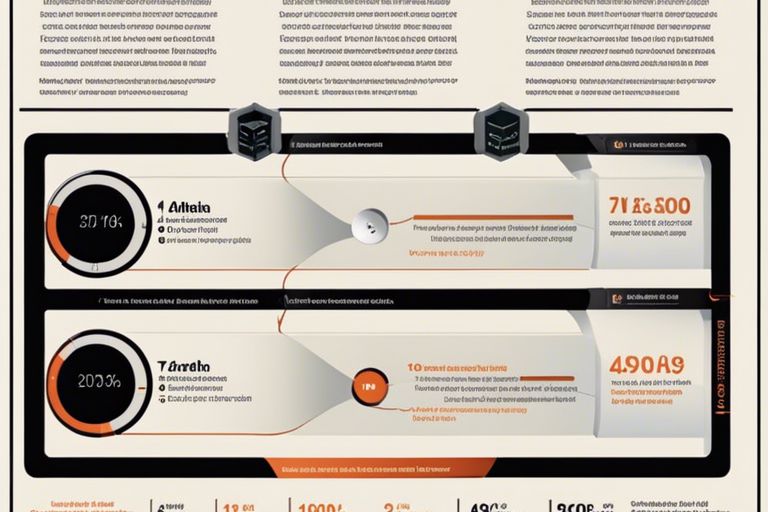Why Do Some Memory Retention Methods Work Better?
There’s a vast array of memory retention methods available, but have you ever wondered why some seem to be more effective than others? In this blog post, we will explore the science behind memory retention and uncover the reasons why certain methods work better for different individuals. Understanding these factors can help you optimize your study habits and enhance your ability to retain information more effectively.
Understanding Memory Function
The Science Behind Memory
Behind every memory is a complex network of nerve cells working together in the brain. When we experience something new, these nerve cells communicate with each other through electrical and chemical signals, forming connections and pathways. These connections are strengthened through repetition and reinforcement, leading to the formation of memories.
Types of Memory and Their Retention
To better understand memory retention, it’s imperative to recognize the different types of memory our brains utilize. There are primarily two types of memory: short-term memory, which stores information temporarily, and long-term memory, which stores information for a longer period. Each type of memory has its retention strategies and mechanisms that influence how well we remember information.
- Short-term memory: This type of memory has a limited capacity and is easily forgotten if not rehearsed.
- Long-term memory: Information stored in long-term memory can last a lifetime, depending on the strength of its neural connections.
- Associative memory: This type of memory connects new information with existing knowledge, making it easier to remember.
- Procedural memory: This type of memory involves remembering how to perform certain tasks or skills.
- Semantic memory: This type of memory relates to general knowledge and facts that are not tied to specific experiences.
Thorough understanding of the different types of memory and their retention mechanisms is crucial for implementing effective memory retention techniques. Knowing how each type of memory functions can help tailor strategies to improve memory recall and retention.
Effective Memory Retention Techniques
The Role of Repetition
For memory retention, repetition plays a crucial role. Repeating information helps reinforce neural connections in the brain, making it easier to recall the information when needed. Studies have shown that spaced repetition, where information is reviewed at increasing intervals over time, is particularly effective in enhancing long-term memory retention.
The Impact of Mnemonics
On the other hand, mnemonics are powerful memory retention techniques that can significantly improve the ability to remember information. Mnemonics involve associating new information with familiar items or creating vivid mental images to aid in recall. By linking new information to existing knowledge or experiences, the brain is better able to store and retrieve the information when needed.
Effective use of mnemonic techniques can make complex information more manageable and memorable. By tapping into the brain’s natural ability to connect new information with existing knowledge, mnemonics can make the learning process more engaging and efficient.
Modern Approaches to Enhance Memory Retention
Technological Innovations
Technological advancements have revolutionized the way we can enhance memory retention. From apps that help create personalized memory exercises to devices that use brain stimulation techniques, the options are vast. These innovations provide interactive and engaging ways to stimulate our brains and improve memory consolidation.
Nutrition and Memory
Memory retention can also be improved through proper nutrition. Certain nutrients, such as omega-3 fatty acids, antioxidants, and vitamins, play a crucial role in brain health and cognitive function. By incorporating a balanced diet rich in these nutrients, individuals can support their memory retention abilities and overall brain health.
Understanding the connection between nutrition and memory is imperative for optimizing cognitive function. Research has shown that a diet high in processed foods and sugars can impair memory and cognitive abilities. In contrast, a diet full of fruits, vegetables, lean proteins, and whole grains can provide the necessary nutrients to boost memory retention and cognitive performance.
Factors Affecting the Efficacy of Memory Methods
Many factors can influence the effectiveness of memory retention methods. Understanding these factors is crucial for maximizing the efficacy of memory techniques. Some of the key factors to consider include individual learning styles, environmental and emotional influences, and the consistency of practice. Recognizing the impact of these factors can lead to more successful memory retention outcomes.
Individual Learning Styles
Efficacy of memory methods can vary depending on an individual’s learning style. Some people learn best through visual aids, while others may prefer auditory or kinesthetic methods. Adapting memory techniques to align with personal learning preferences can enhance retention and recall.
Environmental and Emotional Influences
Learning environments and emotional states can significantly impact the efficacy of memory methods. Distractions, such as noise or clutter, can hinder information processing and retention. Additionally, emotions like stress or anxiety can interfere with cognitive functions, making it harder to remember information.
Environmental factors, such as studying in a quiet and organized space, can promote better concentration and memory retention. Managing emotional wellbeing through relaxation techniques or mindfulness practices can also contribute to improved memory outcomes.
